Mueller Investigation Focusing On White House Response To Reports On Trump Tower Meeting
Robert Mueller's investigators are looking at the President's role in drafting a false statement regarding the June 2016 meeting between his son and a lawyer linked to the Russian government.
The New York Times is reporting that special counsel Robert Mueller’s investigation is focusing on the meeting in Trump Tower in June 2016 between Donald Trump Jr. and other campaign officials and a lawyer with ties to the Russian government and the White House’s response when the reports of that meeting were first made public:
WASHINGTON — Aboard Air Force One on a flight home from Europe last July, President Trump and his advisers raced to cobble together a news release about a mysterious meeting at Trump Tower the previous summer between Russians and top Trump campaign officials. Rather than acknowledge the meeting’s intended purpose — to obtain political dirt about Hillary Clinton from the Russian government — the statement instead described the meeting as being about an obscure Russian adoption policy.
The statement, released in response to questions from The New York Times about the meeting, has become a focus of the inquiry by Robert S. Mueller III, the special counsel investigating Russian interference in the 2016 election. Prosecutors working for Mr. Mueller in recent months have questioned numerous White House officials about how the release came together — and about how directly Mr. Trump oversaw the process. Mr. Mueller’s team recently notified Mr. Trump’s lawyers that the Air Force One statement is one of about a dozen subjects that prosecutors want to discuss in a face-to-face interview of Mr. Trump that is still being negotiated.
The revelation of the meeting was striking: It placed the president’s son and his top campaign officials in direct contact with a Russian lawyer who promised damaging information on Mrs. Clinton, and an email to the president’s son emerged saying that the information was part of Russia’s effort to help the Trump campaign. The special counsel is investigating how those revelations were handled in real time in part because the president was involved in his administration’s response.
Some lawyers and witnesses who have sat in or been briefed on the interviews have puzzled over Mr. Mueller’s interest in the episode. Lying to federal investigators is a crime; lying to the news media is not. For that reason, some of Mr. Trump’s advisers argue that Mr. Mueller has no grounds to ask the president about the statement and say he should refuse to discuss it.
What is already clear is that, as Mr. Trump’s aides and family members tried over 48 hours to manage one of the most consequential crises of the young administration, the situation quickly degenerated into something of a circular firing squad. They protected their own interests, shifted blame and potentially left themselves — and the president — legally vulnerable.
The latest witness to be called for an interview about the episode was Mark Corallo, who served as a spokesman for Mr. Trump’s legal team before resigning in July. Mr. Corallo received an interview request last week from the special counsel and has agreed to the interview, according to three people with knowledge of the request.
Mr. Corallo is planning to tell Mr. Mueller about a previously undisclosed conference call with Mr. Trump and Hope Hicks, the White House communications director, according to the three people. Mr. Corallo planned to tell investigators that Ms. Hicks said during the call that emails written by Donald Trump Jr. before the Trump Tower meeting — in which the younger Mr. Trump said he was eager to receive political dirt about Mrs. Clinton from the Russians — “will never get out.” That left Mr. Corallo with concerns that Ms. Hicks could be contemplating obstructing justice, the people said.
In a statement on Wednesday, a lawyer for Ms. Hicks strongly denied Mr. Corallo’s allegations.
“As most reporters know, it’s not my practice to comment in response to questions from the media. But this warrants a response,” said the lawyer, Robert P. Trout. “She never said that. And the idea that Hope Hicks ever suggested that emails or other documents would be concealed or destroyed is completely false.”
This story all began, of course, with the initial New York Times report about the meeting in June 2016 that included Donald Trump Jr., Jared Kushner, and Paul Manafort, who was Trump’s campaign manager at the time as well as Natalia Veselnitskaya, a lawyer with links to the Russian government. That meeting had first been scheduled after Trump Jr. and others in the campaign were told that Veselnitskaya had access to damaging information about Hillary Clinton. When the reports initially dropped, both Trump Jr. and the White House claimed that the purpose of the meeting was to discuss the issue of the adoption of Russian orphans by American couples and other issues unrelated to the campaign. This claim was most prominently made in the statement that was drafted in response to those initial reports. It later became clear, of course, that this statement was false, and that Trump Jr. and the other campaign officials went into the meeting believing that they were going to be told something about damaging information about Clinton. This was made clear just days later when Trump Jr. released a string of emails between himself and other campaign officials regarding the meeting. Those emails made it clear that the purported purpose of the meeting was based on the claim that the Kremlin-linked lawyer could deliver allegedly damaging information about Hillary Clinton. Later, Veselnitskaya said in interviews that Trump Jr. offered a quid pro quo in exchange for information about Clinton. We also learned that the President himself participated in drafting on the way home from a trip to Europe on Air Force One. On its surface, that statement seemed questionable since it didn’t make sense that three of Trump’s closest campaign advisers would take a meeting on such an esoteric topic.
According to the this new Times report, Corallo warned White House officials against releasing the original statement:
In Mr. Corallo’s account — which he provided contemporaneously to three colleagues who later gave it to The Times — he told both Mr. Trump and Ms. Hicks that the statement drafted aboard Air Force One would backfire because documents would eventually surface showing that the meeting had been set up for the Trump campaign to get political dirt about Mrs. Clinton from the Russians.
According to his account, Ms. Hicks responded that the emails “will never get out” because only a few people had access to them. Mr. Corallo, who worked as a Justice Department spokesman during the George W. Bush administration, told colleagues he was alarmed not only by what Ms. Hicks had said — either she was being naïve or was suggesting that the emails could be withheld from investigators — but also that she had said it in front of the president without a lawyer on the phone and that the conversation could not be protected by attorney-client privilege.
Contacted on Wednesday, Mr. Corallo said he did not dispute any of the account shared by his colleagues but declined to elaborate further.
Even if Mr. Corallo is correct and Ms. Hicks was hinting at an attempt to conceal the emails, doing so would have been nearly impossible. Congress had requested records from Paul Manafort, Mr. Trump’s campaign chairman; Mr. Kushner; and other Trump campaign officials about meetings with Russians. And lawyers had already copied and stamped the emails for delivery to Capitol Hill.
When the president began questioning Mr. Corallo about the nature of the documents, Mr. Corallo cut off the conversation and urged the president to continue the discussion with his lawyers.
Mr. Corallo told colleagues that he immediately notified the legal team of the conversation and jotted down notes to memorialize it. He also shared his concerns with Stephen K. Bannon, then the president’s chief strategist
Corallo’s account, if true, could prove to be quite troublesome for the White House in general and for White House officials such as Hope Hicks, not to mention the President himself, in particular. What it essentially means is that the White House knew from the start that the statement it was putting out was a lie and chose to go with that statement anyway under the largely false belief that they would be able to keep them quiet. As noted above, that belief was mistaken given the fact that they had already been requested by a Congress before the report of the June 16th meeting had even been made public. Whether that belief was accurate or not isn’t the relevant point, the point is that the White House, and presumably the President, put out a false statement and was at least apparently contemplating the idea of withholding relevant information about the meeting such as the emails in question from the public and, presumably, from Congress and the special counsel. Legally, that may not rise to the level of obstruction of justice but it certainly is another example of the extent to which this White House has sought to undermine the Russia investigation whether it be by Congress, by Mueller, or by the news media. Whether it’s a crime or not, it is most certainly inexcusable.
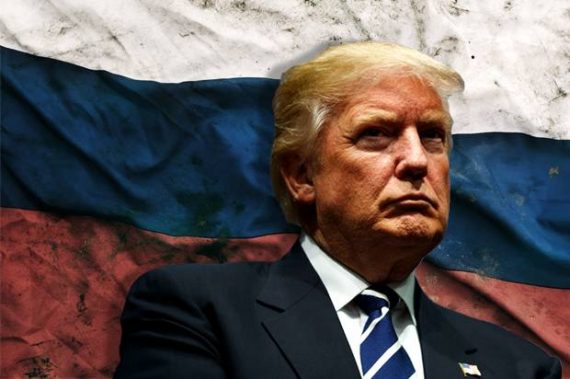

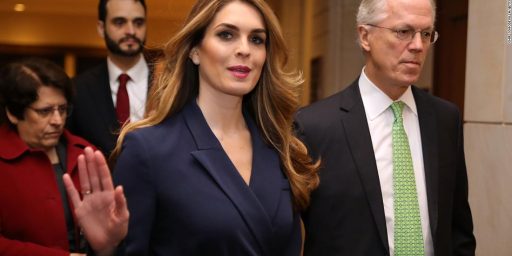
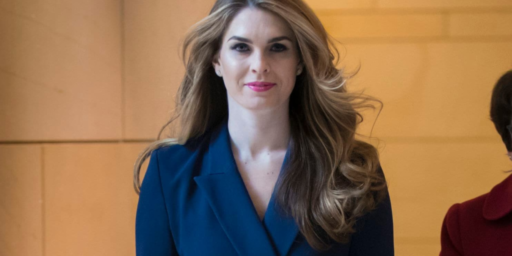
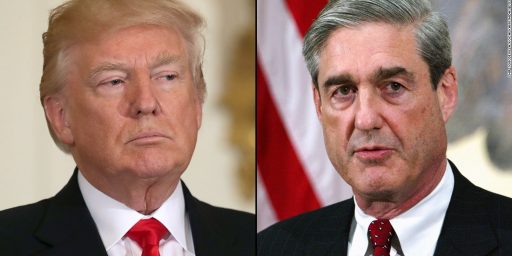
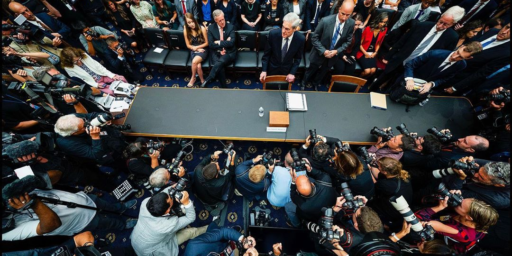
Whether it’s a crime or not, it is most certainly very trumpian.
Obstruction isn’t the primary problem here, per se. This line of investigation indicates a focus on perceived violation(s) of 18 U.S.C. § 1001.
Federal felony – up to five years for each violation.
It certainly isn’t a crime to lie to the NYTimes, and Denture Don’s base certainly seems to enjoy being lied to.
My question is if anyone subsequently told that lie to the FBI in private interviews? If someone who was on that plane later told that lie to law enforcement; ipso facto Trump told them to lie.
I suppose, at the least, that it would help establish a pattern of action, and the mindset of the defendant, Trump.